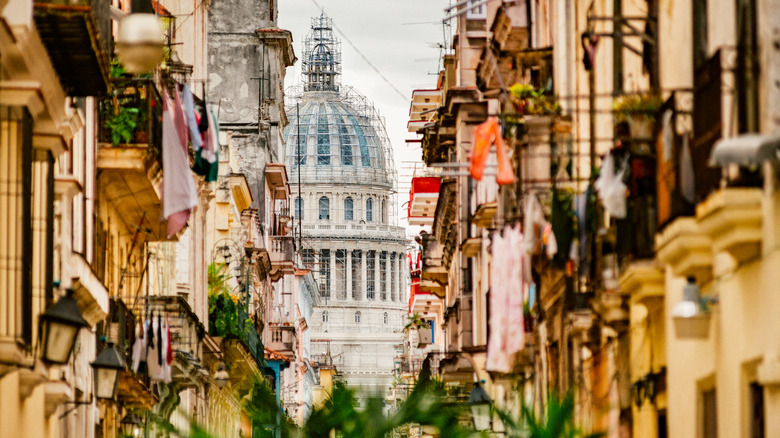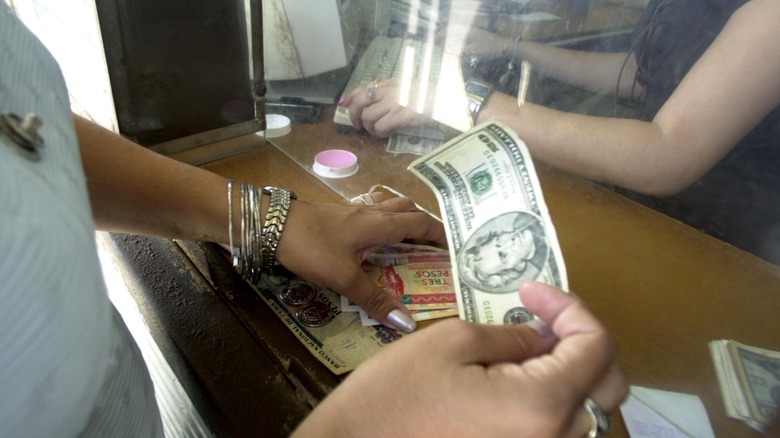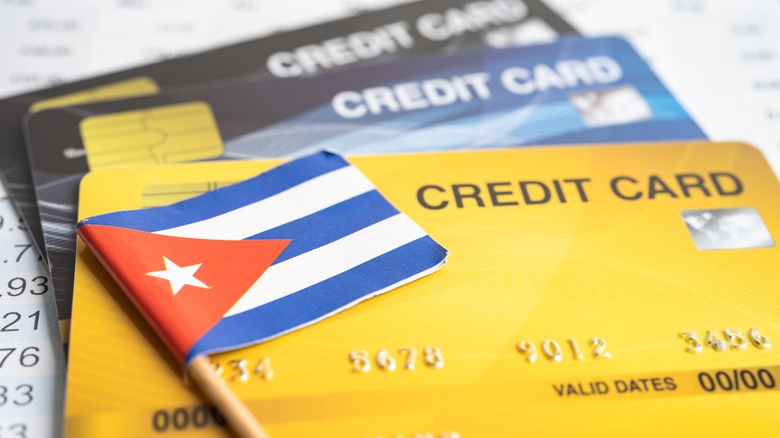The Strict Money Rule Tourists Traveling To This Popular Caribbean Destination Should Know
If you're planning a trip to Cuba, you have to know a few things: where the best beaches are, how to cut a cigar, and what makes a good mojito (fun fact: this world-renowned cocktail originates from Cuba). Along with all these fun things, you must also prepare for your trip financially.
Unfortunately, in Cuba, anything related to money is quite complicated due to past political and economic history. To spare you from any confusion or, worse, financial trouble on your trip to this popular Caribbean destination, here are all the strict money rules you need to be aware of as a tourist visiting Cuba.
First of all, cash is king. In Cuba, the reliance on cash transactions eclipses that of many other tourist destinations in the Caribbean. The country's only official currency is the Cuban Peso (CUP) after the Cuban Convertible Peso (CUC) was abolished at the end of 2020. It's important to note that Cuba is the only place where you can purchase the Cuban Peso, and you will not be able to exchange it in your home country. In Cuba, the currencies that are easiest to exchange and offer the best exchange rates are the U.S. dollar, euro, or pound sterling. Canadian dollars, Australian dollars, or any other currency could be more difficult to exchange and will likely be at a lower rate. With this in mind, you should budget for your trip very carefully.
All bills must be pristine, or else
Are you planning to book any tours? Eat at off-resort restaurants in Havana? Do some fun watersports on the beach? If so, ensure to bring notes of small denominations (ideally in U.S. dollars, euros, or pound sterlings) — it's better to exchange for the local currency a little a time rather than all your cash into a lump sum. Some businesses also accept foreign currency, but you will likely get your change back in CUP.
Adding another layer to Cuba's strict money culture is the requirement for cash to be in near-perfect condition. This isn't an aesthetic preference but a necessity, as banks, currency exchanges, and businesses routinely reject bills that are ripped, excessively worn, marked, or even slightly damaged. This is largely due to a general skepticism towards counterfeit currency. Other developing countries, such as Cambodia, Bolivia, and Myanmar, also only accept pristine bills.
For tourists, this means meticulously examining the cash they plan to bring, ensuring each bill's integrity. Upon arrival, visitors must exchange their foreign currency for Cuban Pesos at official currency exchange outlets, known as CADECA (found all around Cuba), banks, or hotel lobbies. It's at these points of exchange that the condition of each bill is scrutinized. There's typically a surcharge at the CADECA and most banks – 2% for most currencies and 8% for the U.S. dollar.
Does Cuba take card?
Although times might be changing, tapping, swiping, or inserting your plastic will still not be as straightforward as in your home country. First and foremost, debit cards issues by a U.S. bank do not work in Cuba. Most credit cards from Mastercard or Visa do work, while cards from American Express or Discover do not. Here is the biggest shocker: Credit cards issued by U.S. banks are blocked in Cuba. Double-check if your bank is associated with a U.S. financial institution because if it is, any cards from that bank will not work in Cuba.
Credit card payments are not commonly accepted, but major hotels, government shops, and upscale restaurants will most likely accept your card. For any other payment scenarios, use cash. If you cannot pay cash, always ask if the establishment accepts card payments before taking their goods or services. MLC shops, where many imported goods are sold in Cuba, often accept foreign credit cards. Note that all credit card transactions will incur a surcharge, usually around 3%.
ATMs are available in Cuba, but just because they're there doesn't mean you should use them. Unfortunately, Cuban ATMs don't have the best track record. First, you can only take out Cuban Pesos at the official exchange rate. Second, your U.S. card will not work with the ATM. Finally, even if your card works, the ATM might not — it may be out of money, disconnected from the internet, or broken down. So, when all else fails, remember the strict money rule and come to Cuba prepared with cash.


